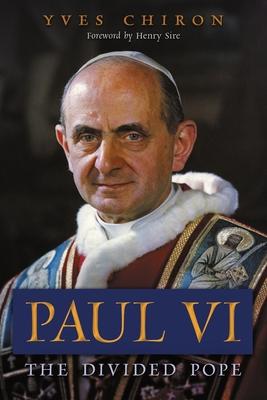Following after brilliant authoritarian Pope Pius XII and good-humored Pope John XXIII, Pope Paul VI seemed hesitant, anxious, even tormented. Yet the impact of his fifteen-year-long papacy was colossal: not a single aspect of Church life was left untouched in the whirlwind of change unleashed by the Ecumenical Council he guided and sought to implement. Who was this man, Giovanni Battista Montini (1897-1978), who so altered the face, the voice, the bearing of Catholicism? Versatile historian Yves Chiron is equal to the challenge of portraying this multifaceted and in many ways enigmatic figure, who was ordained a priest without passing through the seminary and never held a simple parish assignment.
Taking advantage of hitherto untapped archival sources and the testimony of numerous witnesses, Chiron builds up a faithful portrait of a figure controversial at every stage of his career: from his anti-fascist activities as university chaplain to his work in the diplomatic corps, which would create tensions with Pius XII; from his heavy years as Archbishop of Milan to his Janus-like role at the Second Vatican Council, when his interventions alternately delighted and devastated both progressives and conservatives; from his intimate involvement in the recasting of the Roman Catholic liturgy to his adamant rejection of contraception, which left him abandoned by bishops and theologians who held the world's willing ear. Paul VI emerges as a pope torn between conflicting interpretations of aggiornamento and overwhelmed by crises in the Church as he tried to reconcile fundamental principles of dogma with pressures from modernist reformers.
